Decentralized finance, commonly known as DeFi, has emerged as a revolutionary force in the financial industry. Unlike traditional banking systems that rely on centralized institutions, DeFi operates on blockchain networks, eliminating intermediaries and granting users direct control over their assets. This shift toward decentralization has created immense opportunities, leading to a surge in demand for skilled developers who can build and maintain DeFi protocols.
A DeFi protocol developer plays a crucial role in designing, developing, and optimizing smart contracts that facilitate financial transactions without requiring banks or third-party oversight. These developers ensure the security, functionality, and scalability of DeFi applications, paving the way for a more transparent and accessible financial ecosystem.
Understanding the Responsibilities of a DeFi Protocol Developer
DeFi protocol developers are responsible for building and maintaining decentralized applications (dApps) that power the DeFi ecosystem. Their work primarily revolves around smart contract development, security auditing, and improving protocol efficiency.
One of their key tasks is writing smart contracts using blockchain programming languages such as Solidity (for Ethereum-based projects) or Rust (for Solana and other blockchains). These contracts automate various financial functions, such as lending, borrowing, staking, and trading, ensuring trustless execution of transactions.
Security is another major concern in DeFi development. Given the open-source nature of most DeFi projects, they are often targeted by hackers looking for vulnerabilities. Developers must conduct rigorous security audits, implement best practices, and continuously monitor the network to prevent exploits that could result in financial losses for users.
Key Skills Required for DeFi Protocol Development
Becoming a proficient DeFi protocol developer requires a diverse skill set that encompasses blockchain technology, cryptography, and software development. One of the most essential skills is proficiency in blockchain programming languages. Solidity is the most widely used language for DeFi smart contracts, but knowledge of languages like Rust, Python, and JavaScript is also beneficial.
Understanding cryptographic principles is vital, as DeFi applications rely heavily on encryption techniques to secure user transactions and prevent unauthorized access. Additionally, knowledge of decentralized consensus mechanisms, such as proof-of-stake (PoS) and proof-of-work (PoW), helps developers create efficient and secure protocols.
Moreover, developers must be familiar with Web3 development frameworks such as Truffle, Hardhat, and Brownie, which simplify smart contract deployment and testing. Experience with decentralized storage solutions like IPFS and The Graph can also be advantageous for optimizing DeFi applications.
Challenges Faced by DeFi Developers
Despite the immense potential of decentralized finance, DeFi developers encounter several challenges in their work. One of the biggest hurdles is security. Due to the high-value nature of DeFi applications, they are frequent targets of cyberattacks. Smart contract vulnerabilities, flash loan exploits, and front-running attacks have led to significant financial losses in the past.
Another challenge is scalability. As DeFi applications grow in popularity, congestion on blockchain networks like Ethereum can lead to high transaction fees and slower processing times. Developers must explore solutions such as layer-2 scaling, sharding, and sidechains to enhance network efficiency and improve the user experience.
Regulatory uncertainty is also a pressing issue. Governments and financial regulators are still trying to understand and create policies around DeFi, which could impact development and adoption. Developers need to stay updated on legal requirements and ensure their protocols comply with evolving regulations.
Future Prospects in DeFi Development

The future of decentralized finance is promising, with continuous innovations shaping the industry. DeFi developers are at the forefront of this transformation, creating groundbreaking solutions such as decentralized autonomous organizations (DAOs), cross-chain interoperability, and algorithmic stablecoins.
As blockchain technology advances, we can expect more efficient, scalable, and user-friendly DeFi applications. The integration of artificial intelligence (AI) and machine learning in DeFi protocols could further optimize risk assessment, lending strategies, and fraud detection.
Additionally, the rise of Web3 and metaverse applications presents new opportunities for DeFi developers to create financial infrastructures that seamlessly integrate with virtual economies. As mainstream adoption of decentralized finance continues, skilled developers will remain in high demand, playing a pivotal role in shaping the next generation of financial services.
Conclusion
Decentralized finance is transforming the way people interact with financial services, eliminating intermediaries and providing greater financial freedom. DeFi protocol developers are essential in building and securing this ecosystem, ensuring its growth and sustainability.
With the right skill set, DeFi developers can contribute to cutting-edge innovations while overcoming challenges such as security risks and regulatory uncertainties. As the DeFi landscape evolves, these professionals will continue to play a crucial role in shaping a decentralized financial future that is accessible to all.
For those interested in becoming DeFi protocol developers, now is the perfect time to learn blockchain programming, understand smart contract security, and explore opportunities within this rapidly growing industry. The future of finance is decentralized, and developers hold the key to unlocking its full potential.


